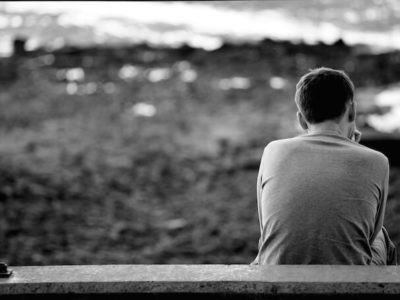Trauma takes many shapes and forms. There are horrific moments, whether physical or emotional,that come along without any expectation, potentially affecting a person for the rest of her life. Mine came at the ripe old age of six when I woke up one day and my mother did not. As much as I hate to admit it, this instance has shaped my sense of self in an incalculable number of ways. This is how trauma works: it makes us and breaks us and shapes us, and we tend to feel like we have to stay quiet about it—but that’s a lie.
College is a particularly difficult time to deal with trauma as it presents its own unique set of stressors. “When you add the stress of, say, a sexual assault on top of classes, extracurriculars and building a resume, it’s really difficult,” said Debra Weiss, a licensed mental health advocate with the University of Florida. We’re at a point of exploration and with that comes confusion and difficulty while trying to make the transition from being a child to an adult. “The university population is such a vulnerable population because there is development happening. It’s this hybrid stage. It’s so much learning and growing that it leaves so much room for predatory behavior,” said Weiss.
There are many different kinds of trauma. “[Trauma is] what can just feel like chaos at times. Whether it’s diagnostic doesn’t [necessarily] matter,” said Weiss. Some instances are emotional, such as the death of a parent or loved one, while others are physical in nature like a car accident or a sexual assault.
When my mother died I cried so hard I would throw up, pass out or both. I felt grief so heavy that my body would shut down under the weight of it. While I don’t remember much about that time in my life, I remember that debilitating pain and the loneliness it brought. My family members were grieving in different ways. They seemed like they wanted to push it aside or pretend like it didn’t exist. I, on the other hand, desperately needed to talk and cry and scream in an attempt to exorcise my grief. I never understood their need to forget and they didn’t understand my need to remember. “The problem with trauma is it usually comes with shame. Shame lives in the shadows. When you shine a light on that and hear someone else say, ‘me too,’ that is really powerful,” said Weiss.
I didn’t start to heal in any meaningful way until I was about 16. I found a group of friends who loved me like family. They could divert my attention by making me laugh or they would sit and cry with me until I ran out of tears. Inexplicably, I never felt ashamed with them and they helped me believe I had more strength than I gave myself credit for. Sometimes I feel like they saved my life.
The truth is, contrary to what I believed when I was a child, there will never come a day when I’m okay with what happened to me. The pain reemerges in times of stress and difficulty. There are still days when I get so overwhelmed I wish I could pick up the phone and call my mother so she could tell me everything will be okay, only to remember that I can’t do that. When I first got to college I struggled with the stereotypical collegiate concept of “finding myself.” I didn’t know how to figure out what kind of person or what kind of woman I wanted to be without my mother’s help. It added an extra layer of stress of which I was deeply ashamed. I felt like after all of the time that passed, I should be able to handle my situation.
In the last few years I’ve figured out who I want to be. All I want is to live my life with integrity, honesty and compassion. It sounds simple but it’s a realization that took time, introspection and a lot of help. Traumatic experiences, particularly those that happen when we’re young, can disrupt our development and alter our lives in untold ways. If something happens to you, take the time to figure out what you need and get that help — be it from friends, family or professional counselors. Everyone is different, but we are all survivors. “People have an innate ability to be resilient and these experiences can really bring that out. Some really strengthening experiences can come out of these events,” said Weiss.
It will take time to work through what has happened to you, whatever that may be, but hang in there. Life is difficult, but it has a way of coming back around for the better. “If I could give therapeutic advice to anyone suffering from trauma, self-kindness and unconditional self-love would be my wish for them, self-acceptance,” said Weiss. Take it from a woman whose soul was once broken—you’re strong and capable and you will make it through.



















